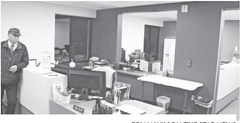Medford school board talks school building needs


The Medford School Board is getting the ball rolling on a potential November 2024 referendum to address educational building needs and to get ahead of maintenance needs district-w...


The Medford School Board is getting the ball rolling on a potential November 2024 referendum to address educational building needs and to get ahead of maintenance needs district-w...